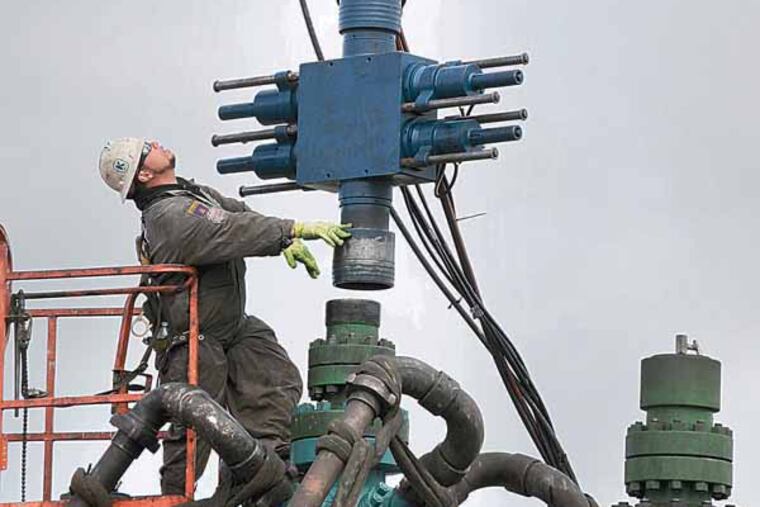Marcellus slowdown impacts local water-delivery deal
A joint venture between two Philadelphia-area companies to supply water for hydraulic fracturing in the Marcellus Shale is returning a profit after a year in service, but growth has been dampened by a slowdown in drilling.

A joint venture between two Philadelphia-area companies to supply water for hydraulic fracturing in the Marcellus Shale is returning a profit after a year in service, but growth has been dampened by a slowdown in drilling.
Aqua-PVR Water Services L.L.C., formed by Aqua America Inc. and PVR Partners L.P., recently completed a third phase of building a pipeline that extends 56 miles from the Susquehanna River across Lycoming County into Tioga County to deliver water to shale-drilling operations.
In its quarterly earnings released this week, Aqua said the pipeline had pumped 128 million gallons of water to gas producers since it went into service in April 2012, eliminating the need for about 26,000 water-truck trips over rural Pennsylvania roads.
Drilling companies inject the water, combined with sand and chemicals, into the deep shale formation to fracture the rock to release natural gas. But a slowdown in drilling over the last year means that gas producers are fracturing fewer wells and buying less water than anticipated.
Nicholas DeBenedictis, chairman and chief executive of Aqua, said Friday the joint venture pumped no water in April, but three drilling companies recently placed orders for deliveries in May.
DeBenedictis told investors this week that the joint venture would still be profitable this year and return two cents a share, or about $2.8 million, in earnings for the Bryn Mawr company in 2013.
"If they drill, we know there will be business," he said. "The investment's made, and it works."
Aqua America has invested $45.3 million in the business, which draws water from the Susquehanna River near Jersey Shore, Pa. The water is pumped under high pressure through a 12-inch pipeline built on the right-of-way of PVR's natural gas pipelines to drilling locations, eliminating the need for 5,000-gallon tanker trucks to haul water to drilling sites.
DeBenedictis said he is still bullish on natural gas development. He said Aqua is exploring opportunities to build a similar water-pipeline system in eastern Ohio, where gas producers are in the early stage of drilling the Utica Shale.
"The Utica is where Marcellus was five years ago, probably," he said.
Aqua also announced recently that it plans to increase the number of vehicles in its Southeastern Pennsylvania truck fleet that use compressed natural gas (CNG) from nine to 90 in the next five years, said Charlie Stevenson, Aqua's manager of fleet and materials.